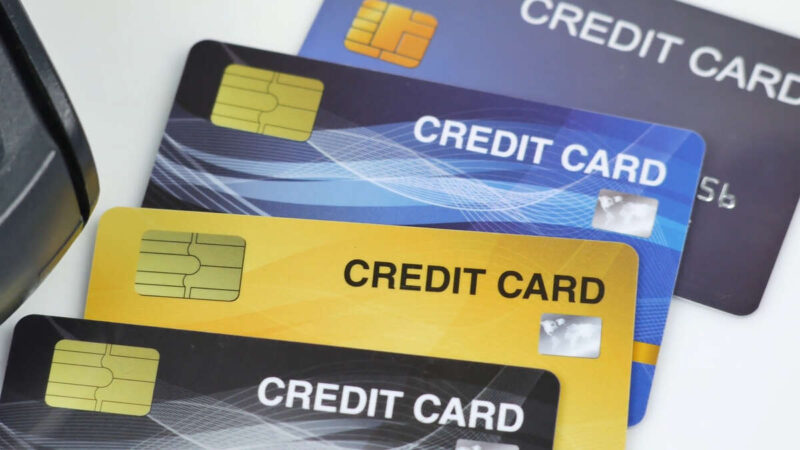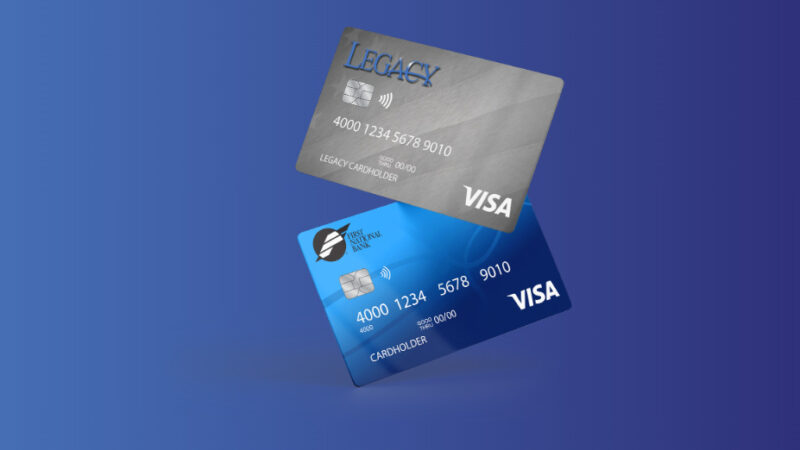When exploring credit card options, it’s vital to determine if the card in question is genuine and how it compares to other cards on the market. The Legacy Visa® Credit Card is a real credit card, tailored towards individuals looking to build or rebuild their credit history.
It is issued by First National Bank and comes with the legitimacy as any credit card backed by a major financial institution would. Recognizing a real credit card involves looking at the issuer’s credibility, the card’s acceptance through payment networks like Visa, and the financial services it offers.
Key Takeaways
- The Legacy Visa® Credit Card is a legitimate offering by the First National Bank for those looking to establish credit.
- It is important to evaluate the card’s fee structure and APR relative to other available credit card options.
- Responsible usage of credit cards is essential for maintaining good financial health.
- The Legacy Visa® Credit Card incorporates advanced security features and verification processes to protect cardholders against fraud.
Overview
In evaluating credit card options, it is critical to comprehend the basic functioning of these financial tools and the various types that are available.
Credit Card Basics

A credit card represents a line of credit issued by a financial institution, granting the cardholder the ability to make purchases or cash advances up to a certain limit. The issuer extends this credit on the premise that the cardholder agrees to pay back the borrowed amount, along with any applicable interest or fees.
Credit cards are either secured, requiring a deposit acting as collateral, or unsecured, which do not require collateral but typically depend on the user’s credit history.
- Borrowing Limit: The maximum amount that can be charged to the card.
- Interest Rates (APR): The annual percentage rate charged on carried balances.
- Fees: Charges that may apply, including annual fees, balance transfer fees, and late payment fees.
For a more detailed understanding, the website Wallet Crowd provides an analysis of the Legacy Visa® Credit Card, specifically highlighting issues of high fees which potential cardholders must consider.
Types of Credit Cards

The types of credit cards vary, catering to different financial needs and consumer profiles:
- Standard Credit Cards: Basic cards which offer a line of credit for purchases.
- Rewards Cards: These provide benefits like cash back, points, or miles on purchases.
- Balance Transfer Cards: Specially designed for transferring balances from one card to another, typically at a lower interest rate.
- Secured Credit Cards: Require a deposit and are often used by individuals looking to build or repair their credit.
- Charge Cards: Require the balance to be paid in full each statement period and do not have pre-set spending limits.
- Subprime Credit Cards: These are for individuals with poor credit histories and often come with high fees and interest rates.
The types of credit cards and their respective purposes are outlined in a ‘Credit Cards 101’ article according to NerdWallet.
Analyzing the Legacy Card
The Legacy Card has generated discussions around its fee structure and suitability for those with certain credit profiles. This analysis will provide specifics on the card’s features and its legal status.
Features of the Legacy Card
- Annual Fee: Ranges from $49 to $75, which is considered relatively high for the limited benefits it offers.
- Credit Limit: Starts between $350 and $1,500, dependent on the individual’s creditworthiness.
- APR: The card has a variable high Annual Percentage Rate, indicating the cost of carrying a balance can be significant.
- Grace Period: At least 25 days post the end of each billing cycle, giving cardholders a period without interest charges.
- Cash Advances: Cardholders may receive cash advances up to 50% of their credit limit.
Legal Status of Legacy Card
The Legacy Card is a real and legitimate credit product offered by First National Bank. It complies with applicable financial service regulations and consumer protection laws. It’s specifically designed for individuals looking to build or rebuild their credit history.
Comparing Legacy with Other Cards

When examining the Legacy credit card, it’s vital to assess how it stacks up against its competition based on its features and user financial profiles.
Advantages Over Other Cards
- Credit Building: For individuals rebuilding their credit, the Legacy Visa Credit Card offers an opportunity much like other subprime credit cards. It reports to the major credit bureaus, which is crucial for anyone looking to improve their credit score.
- Cash Advances: Users have access to cash advances, although these are capped at a certain percentage of the credit limit as noted in the review by BadCredit.org.
Limitations and Considerations
- Annual Fees: Compared to other credit options, the Legacy card can carry high annual fees, making it less attractive for those looking to minimize their credit costs. The fees can vary, and they may amount to $75 per year, billed monthly.
- High Variable APR: The high variable APR is a significant concern, especially for individuals who tend to carry a balance on their credit cards. This can lead to substantial interest charges over time.
- Modest Benefits: The Legacy card offers limited perks and benefits when compared to some other credit cards targeting the same consumer segment. Where some cards provide rewards or lower fees, Legacy does not.
Determining Card Authenticity
When establishing the authenticity of a credit card, one should examine both the security features inherent to the card and the verification processes employed during transactions.
Security Features
Credit cards are embedded with various security features to prevent fraud and unauthorized use. The Legacy Visa® credit card, like most modern credit cards, typically includes holograms, intricate card design patterns, and a signature panel that is difficult to replicate. Consumers can identify these features visibly or through tactile elements, such as raised numbers on the card’s surface.
Verification Processes

The verification processes for credit cards involve multiple steps to ensure that the cardholder is conducting the transaction. During point-of-sale transactions, Payment authentication is an essential part of these processes. It may include providing a PIN (Personal Identification Number), signing a receipt, or undergoing biometric verification.
Online transactions usually require the cardholder to enter the CVV (Card Verification Value), a security code found on the back of the card, as an additional layer to confirm that the individual attempting the transaction is in possession of the card itself.
Guidelines for Using Credit Cards Safely
- Regularly Monitor Accounts: She should check her credit card statements frequently to identify any unauthorized transactions quickly.
- Use Strong, Unique Passwords: It’s vital to ensure that each credit card account has a unique password, combining letters, numbers, and symbols to increase security.
- Security Features Activation: Enabling alerts for transactions and opting for two-factor authentication can provide an additional layer of defense.
- Secure Connections: When making online purchases, one should ensure that the connection is secure and that the URL begins with “https://” indicating encryption is used to protect the transmitted data.
Frequently Asked Questions
What are the eligibility requirements for applying for a Legacy Visa credit card?
Eligibility for the Legacy Visa credit card typically requires a prescreened offer received via mail, indicating preliminary selection based on credit criteria. Applicants should be aware that approval is not guaranteed and depends on further credit assessment.
What kind of customer service options does Legacy credit card provide?
The Legacy Visa credit card offers customer support through various channels which may include phone assistance, secure online messaging, and potentially an app, ensuring cardholders have access to help whenever they need it.
Can the Legacy Visa credit card be used for international transactions?
Yes, the Legacy Visa credit card can be utilized for international transactions, but users should expect foreign transaction fees as commonly associated with credit card usage abroad.
What are the features of the Legacy mobile app?
The features of the Legacy mobile app often encompass account management functionalities such as viewing transactions, making payments, and receiving real-time notifications related to account activity.
How can one manage their Legacy Visa credit card account online?
Cardholders can manage their Legacy Visa credit card account online by accessing their account through the issuer’s official website or mobile app, where they can check balances, peruse statements, and complete payments.
What steps should be taken to request a credit line increase on a Legacy credit card?
Requesting a credit line increase on a Legacy credit card involves contacting customer service or using the account management features online or through the app, where automatic reviews for increases may occur as early as six months into the account’s history.
Conclusion
The Legacy Visa® Credit Card stands as a genuine financial instrument designed for individuals aiming to enhance or rebuild their credit history. Issued by First National Bank, it offers a pathway towards better financial health, albeit with considerations such as its fee structure and APR that demand careful assessment.
Like any credit card, responsible usage, understanding its terms, and comparing it with other market offerings are essential steps to ensure it aligns with personal financial goals. The card’s legitimacy is backed by standard security features and verification processes that protect cardholders, emphasizing the importance of safe credit usage practices.
